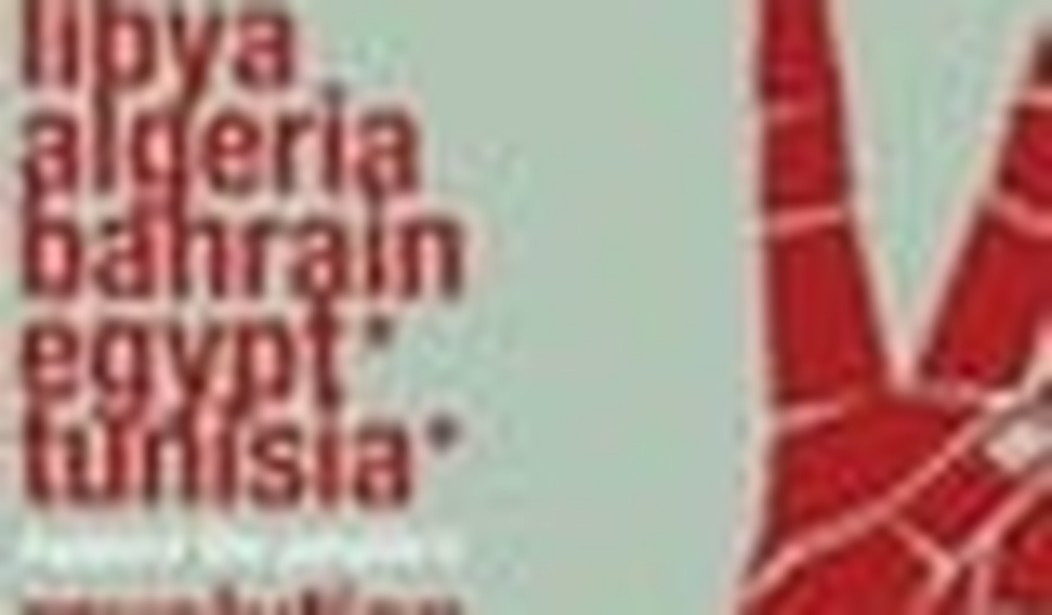I am actually shouting at my television.
I am watching Fox News Sunday, and politicians and pundits with whom I normally agree — Newt Gingrich, John McCain, Joe Lieberman, and Bill Kristol — are all making me crazy with their advice on Libya. Each seems to believe that success in America’s latest foreign adventure is predicated on taking out Moammar Gaddafi, and they are all blaming President Obama and Secretary Robert Gates for failing to grasp the obvious.
So now I’m yelling: “Guys, the question is not what to do about Gaddafi — the question is what to do after he’s gone!”
Senator Lieberman seems to have this worked out. He echoes a sentiment I have heard regularly from lawmakers and journalists since January, when the “jasmine” revolution erupted in Tunisia. Once brutal dictators like Gaddafi, Mubarak, and now possibly even Bashar Assad in Syria are deposed, democracy will surely bud and bloom all over the Middle East. There is even a name for this awakening, “Arab Spring,” which I must admit has poetry to it. It would make a good show tune.
But as foreign policy, it is dangerously delusional.
Whether Gaddafi flees to Venezuela, barricades himself in his Tripoli fortress for a prolonged siege, or finishes toes up in a ditch, the vacuum he leaves behind in a country he has dominated for 40 years is what should concern policymakers. And the question they should be asking is this:
If freedom and democracy are waiting to sprout from Tunis to Manama, where are the seeds? Who exactly is doing the sowing?
Unlike that other fertile era when democracy flowered across central Europe before the Berlin Wall finally collapsed twenty years ago, there are no Lech Walesas or Vaclev Havels to lead the way to a totally new and unfamiliar system of self-governance. Instead, in Egypt — the country for which most analysts have the highest hopes — we are witnessing the triumphal return of Yusuf Qaradawi, probably the preeminent Islamic scholar in the world and the spiritual leader of the Muslim Brotherhood. While he was living in exile in Oman, Qaradawi preached jihad regularly on Al Jazeera and encouraged the murder of civilians in Iraq. Now, when he prays in Tahrir Square, he can draw a million people.
The protesters who toppled Mubarak never exceeded a hundred thousand.
Meanwhile, we learn that one of the rebel leaders we are backing in Libya is Abdul-Hakim al-Hasadi, whose last tour of duty was fighting against U.S. troops in Afghanistan. His fighting force, the Libyan Islamic Fighting Group, is an ally of al-Qaeda and a fellow traveler with the Muslim Brotherhood. The Brotherhood and al-Qaeda have fallen out over tactics in the past, specifically over whether Bin Laden should have launched an attack on the West on 9/11 which killed Muslims. However, there is no disagreement over whether to kill infidels in Muslim lands: it is decreed in the Qu’ran.
Hasidi and his soldiers may be handy in a firefight right now, but what does the United States do if they want to hang around after the battle and help to write a new constitution?
Speaking of constitutions, there may be a small kernel of hope for some kind of pluralism to actually take root in Tunisia. There a new constitution is scheduled to be voted on in about four months, and one of the framers will probably be Sheikh Rashid Al-Ghannushi: he is the leader of Ennahda, the Tunisian branch of the Muslim Brotherhood. Like Qaradawi, Ghannushi has lived in exile for 20 years only to return to a large popular following now that the Ben Ali government has been overthrown. However, unlike his fellow Muslim Brothers across the Arab world, Ghannushi fashions himself as a reform Islamist. He claims he is not intent on restoring the Caliphate, he professes support for women’s rights, and he does not take a hardline stance against the status of non-Muslim citizens in Islamic countries. Whether this is straight talk or taqqiya remains to be seen, but at present Ghannushi is certainly outside of the traditional doctrine preached and practiced by the Muslim Brotherhood. Because of this, Western diplomats should be wary of someone who appears to be passing himself off as the Scott Brown of Islam.
A gentle reminder to the believers in the “Arab Spring”: when Poland, Czechoslavakia, Hungary, and even Albania collapsed under the weight of communism, the United States rushed in with organizations such as the National Endowment for Democracy, the International Republican Institute, and the National Democratic Institute. We were usually able to fill the void left by the Soviets because all we were doing was replacing one discredited political system with one that had not yet been tried. In the Arab world we are up against shariah, a system of laws and proclamations that are decreed by God and not subject to the free will of man.
How does democracy take hold in a country where free will is considered apostasy punishable by death? We must not believe in that ourselves because U.S. advisors have helped draft constitutions in both Iraq and Afghanistan that have made shariah the supreme law. And in Egypt, whose constitution also elevates shariah above any manmade statute, the only obstacle standing in its way was the Mubarak regime.
The Muslim Brotherhood has renamed itself the Freedom and Justice Party in time for the upcoming elections. Should they prevail, does anyone believe they will abandon fourteen hundred years of Mohammed’s teachings for some wild ideas from James Madison?
So forgive me, esteemed elders of Fox News, if I do not wax euphoric over the prospect of an “Arab Spring.” I don’t smell the flowers and I don’t hear the robin’s song. The tune that keeps running through my head is Mel Brooks’ “Springtime for Hitler.”









Join the conversation as a VIP Member